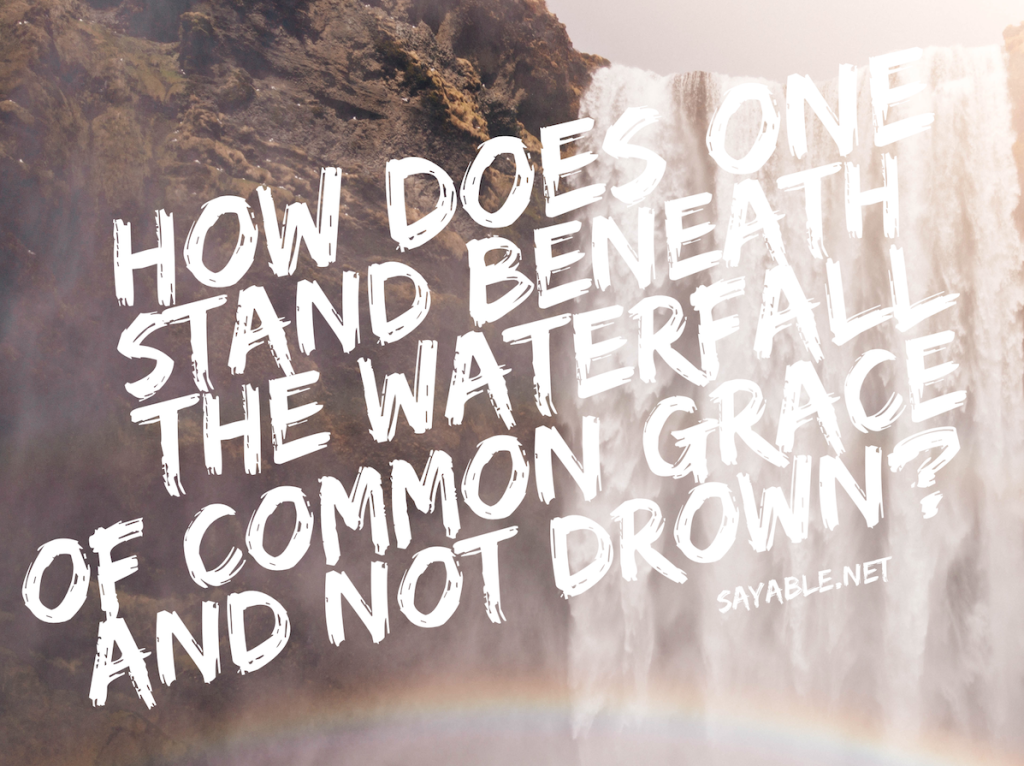Lifting the Hands that Hang Down
I'm an internal processor and, I suspect like most internal processors, prefer stillness and the ministry of presence when I'm suffering or confused or in pain. I don't run to a multitude of counselors or need to process my feelings with seven to ten friends or even more than one. I don't like hearing platitudes or trite cliches. Getting preached at or rebuked in the midst of pain only shuts me down further. What I desire is the gift of presence.
This can be a hard gift to give though because we're a fix it quick culture, even within the church. We want to answer, minister, heal, advise, counsel, and find the fastest way through the searing loss.
A story I've gone back to again and again and again in the past two years is the man who saw men as trees walking. I find such comfort in the half-way healing of a blind man. Jesus completed the healing and it wasn't his intention to leave the man with incomplete sight, but for some reason, he did not heal him completely immediately. I am fascinated with this Jesus. What is Jesus trying to say about himself in that moment? What aspect of his character did he want the man and those standing around to see? The thing I keep coming back to is this: Jesus completes the work, but the timing isn't always what we expect. I've quoted this before, but Zack Eswine says, "It's not our job to finish what Jesus has left unfinished." So much of our Christianese platitudes are just that: trying to wrap up, seal, heal, and solidify what Jesus is still in the process of working in.
We all know someone today who is suffering in some way. Perhaps a physical ailment, or walking through a confusing situation, or who just lost someone special. I know, for me, the past two years have been rote with suffering and a lot of it was the sort people don't look at as the Real Suffering. Moving cross-country three times, miscarrying, my husband's job loss, confusion about church situations, losing 100k on our house sale, witnessing the shooting of a police-officer and then living in a city where we heard gunshots weekly for a year, it felt like everywhere I looked I saw dimly, mere shapes of what was real, but not anything solid or real or hope-inducing. There was no one thing that I could point to and say, "This is what hurts." Everything hurt. Everything was tender. Everything was painful to touch or even talk about.
In those spaces, a few friends gave me the gift of presence and it made such a difference for me. I knew the truth of the gospel and the Word of God. What I didn't need was to be pounded over the head with things I knew were true, but which didn't feel true. There were plenty of counselors and advisers and good-idea-givers, lots of times I said things rote with confusion and was met with less than empathy, many moments of sadness and awkward silence. But what meant the most, looking back, was:
The gift of flowers or a plant.
A note in the mail or under my office door.
An offer to drop a meal off at my house.
A drive out of the cities and into the mountains or country together.
Someone who simply listened, who wept when I did.
An envelope full of cards, gift-cards, and money.
These might have seemed a small thing to the givers, but they meant paramount things to us in the moment. They were the ministry of presence to us in a time when nothing could fix all that felt broken except Jesus—who for our good and his glory had left those things unfixed for that moment.
Here's my encouragement to you today (and some I gave to myself this morning regarding a few friends): think of a few friends who are suffering, maybe (especially?) suffering silently, and give them the gift of presence. It's really easy to lavish gifts on people who have success, lots of notice, are surrounded by hordes of people, where you know your gift will be Instagrammed and given shout-out about on social media. Something in our flesh loves to give more to those people for some reason. I'm not sure why. But those quiet sufferers might need it more today. That bouquet of flowers showing up anonymously or with a card simply stated they're loved and seen, or that tight hug in a hallway or coffee shop, or the offer to just drive an hour or two away from it all for a bit—these things mean more than most of us can know from our relative place of peace and joy.
Sometimes we can't lift our own drooping hands or strengthen our weak knees, and we need the Church to come alongside us and help. I'm praying if you need that today, someone sees, and if you can be that today, you are.





 I never thought I'd be the girl without a family, the willingly orphaned. We left Texas in tears, reading our congratulatory wedding cards on the drive to Colorado through weeping and intermittent sobbing. By we, I mean me.
I love
I never thought I'd be the girl without a family, the willingly orphaned. We left Texas in tears, reading our congratulatory wedding cards on the drive to Colorado through weeping and intermittent sobbing. By we, I mean me.
I love 







